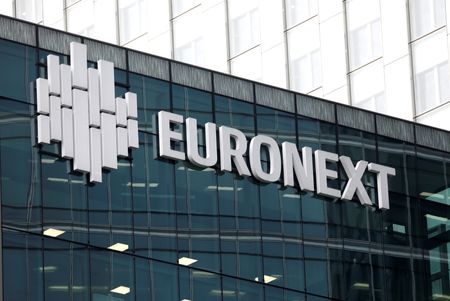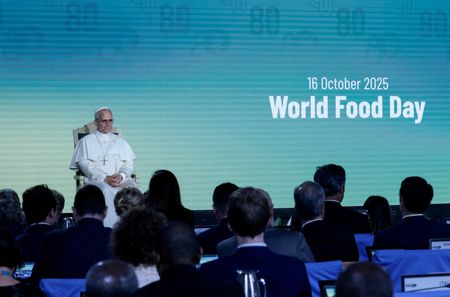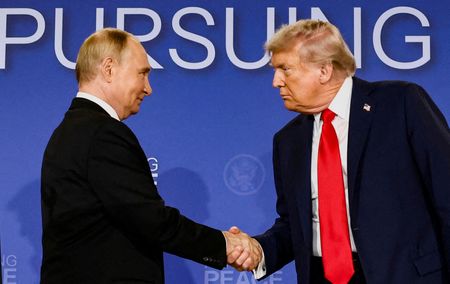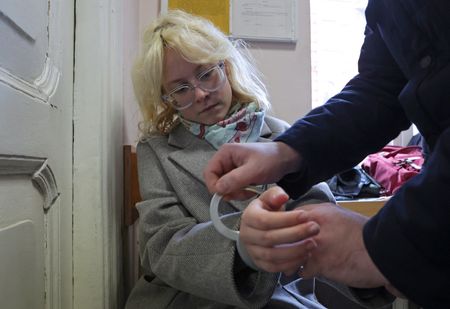By Leila Miller
BUENOS AIRES (Reuters) -When U.S. President Donald Trump met with Argentine President Javier Milei in the White House on Tuesday, days after offering Argentina a $20 billion currency swap lifeline, he threatened that further U.S. support will ride on Milei’s party succeeding in this month’s midterm elections.
Libertarian Milei’s economic “shock therapy” measures have substantially cooled inflation and achieved a fiscal surplus, cheering investors and earning the praise of the Trump administration. But there are signs Argentines are growing weary of the cost of fiscal adjustment – austerity measures, cuts in subsidies, and shuttered factories.
“If he doesn’t win, we’re gone,” Trump told reporters on Tuesday.
WHAT IS UP FOR GRABS IN THE MIDTERM VOTE?
Half of Argentina’s lower Chamber of Deputies, or 127 seats, as well as a third of the Senate, or 24 seats, are up for election on October 26.
The Peronist opposition movement currently holds the largest minority in both houses. Milei’s relatively new party, La Libertad Avanza, has only 37 deputies and six senators.
The most consequential races will be in the densely populated province of Buenos Aires, where a high number of seats are up for reelection.
Political experts Reuters spoke to said that if Milei’s party clinches more than 35% of the vote that would be seen as a positive sign of growing support, using as a barometer the 30% that Milei secured in the first round of the 2023 presidential election. If he approaches 40% that would be seen as “a very good election,” said Marcelo Garcia, director for the Americas at risk consultancy Horizon Engage.
WHAT IS AT STAKE?
A strong showing would substantially increase the presence of Milei’s party in both chambers, enabling the president to continue his policies to overhaul the economy. Milei announced this month that he intends to introduce labor reforms to increase the formal workforce and new national tax cuts that he has yet to explain in detail.
“If 2025 indicates Milei is a waning figure, investors will start bracing for a more center or center-left option for 2027,” said Garcia.
Investors will be looking in particular to see if Milei obtains enough votes to block opposition lawmakers from jeopardizing his agenda by overturning his vetoes. In the last two months, Congress has overturned Milei’s vetoes of bills boosting funding for public universities, pediatric health care, and for people with disabilities.
Milei’s party will need about one third of the votes in both houses of Congress to thwart future attempts to override vetoes.
In order to secure that, it will likely need to form alliances. Milei’s party has most often allied itself with the PRO, a centrist party led by former President Mauricio Macri.
Whether potential allies will support Milei will depend on how well his party does in the election, said Lorenzo Sigaut Gravina, an economist at Argentine think-tank Equilibra.
HOW LIKELY IS IT THAT MILEI WILL SUCCEED?
Milei’s approval rating has dropped to below 40% recently, the lowest level of his presidency.
As well as the concerns over austerity, he has been affected by corruption allegations linked to those close to him. A judicial investigation was launched after leaked and uncorroborated audio recordings suggested that his sister and chief of staff, Karina Milei, was involved in a bribery scheme. Milei has called the accusations a political smear campaign. Meanwhile, a candidate for Milei’s party in the province of Buenos Aires resigned amid corruption allegations but it was too late to remove his name from the ticket.
Despite those headwinds, Facundo Cruz, a political consultant in Buenos Aires, said that Milei’s party has a much larger presence nationally than it did during the legislative elections in 2023.
“It will inevitably increase its seats,” he said. “The question is – up to how much?”
(Reporting by Leila Miller, Editing by Rosalba O’Brien)









